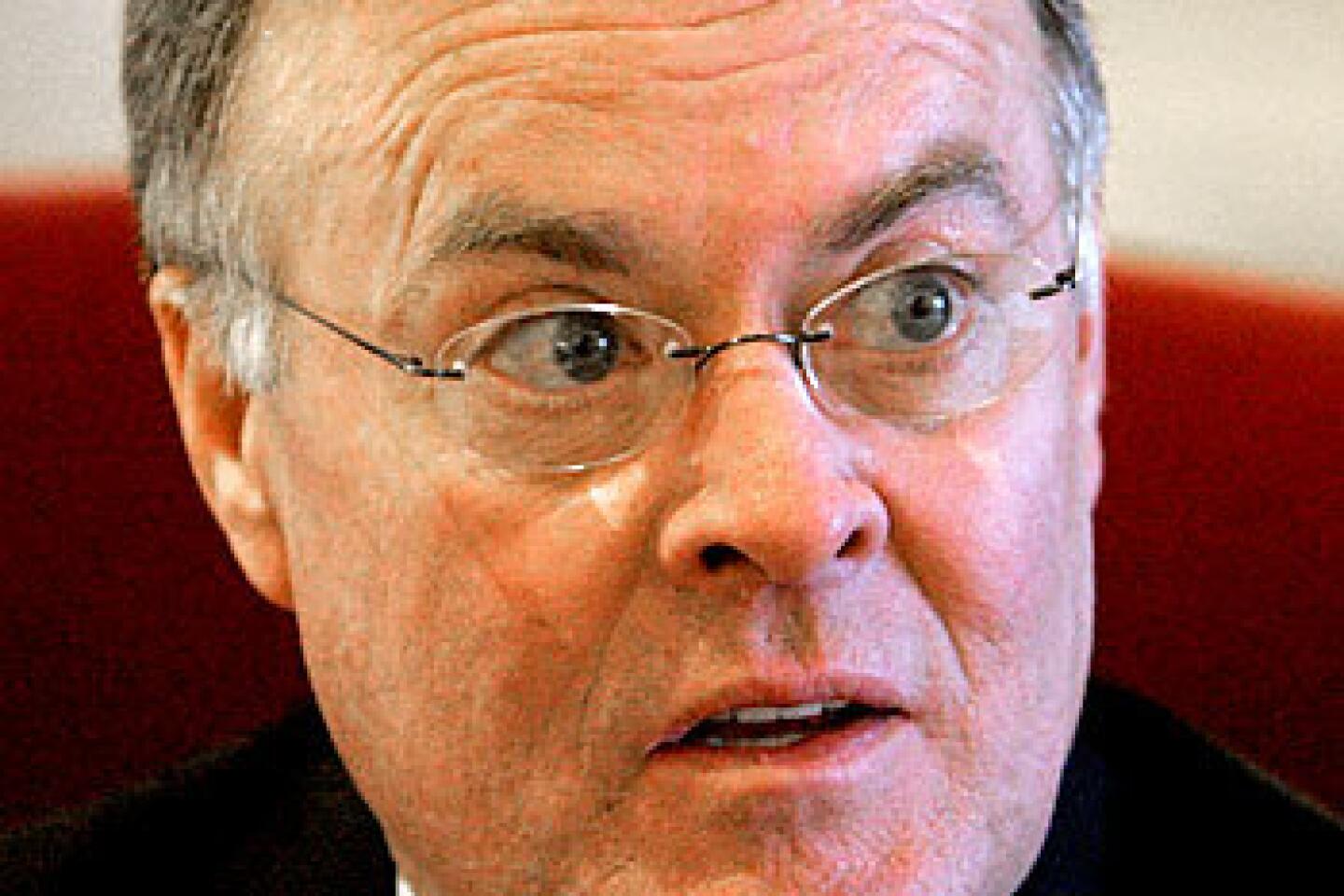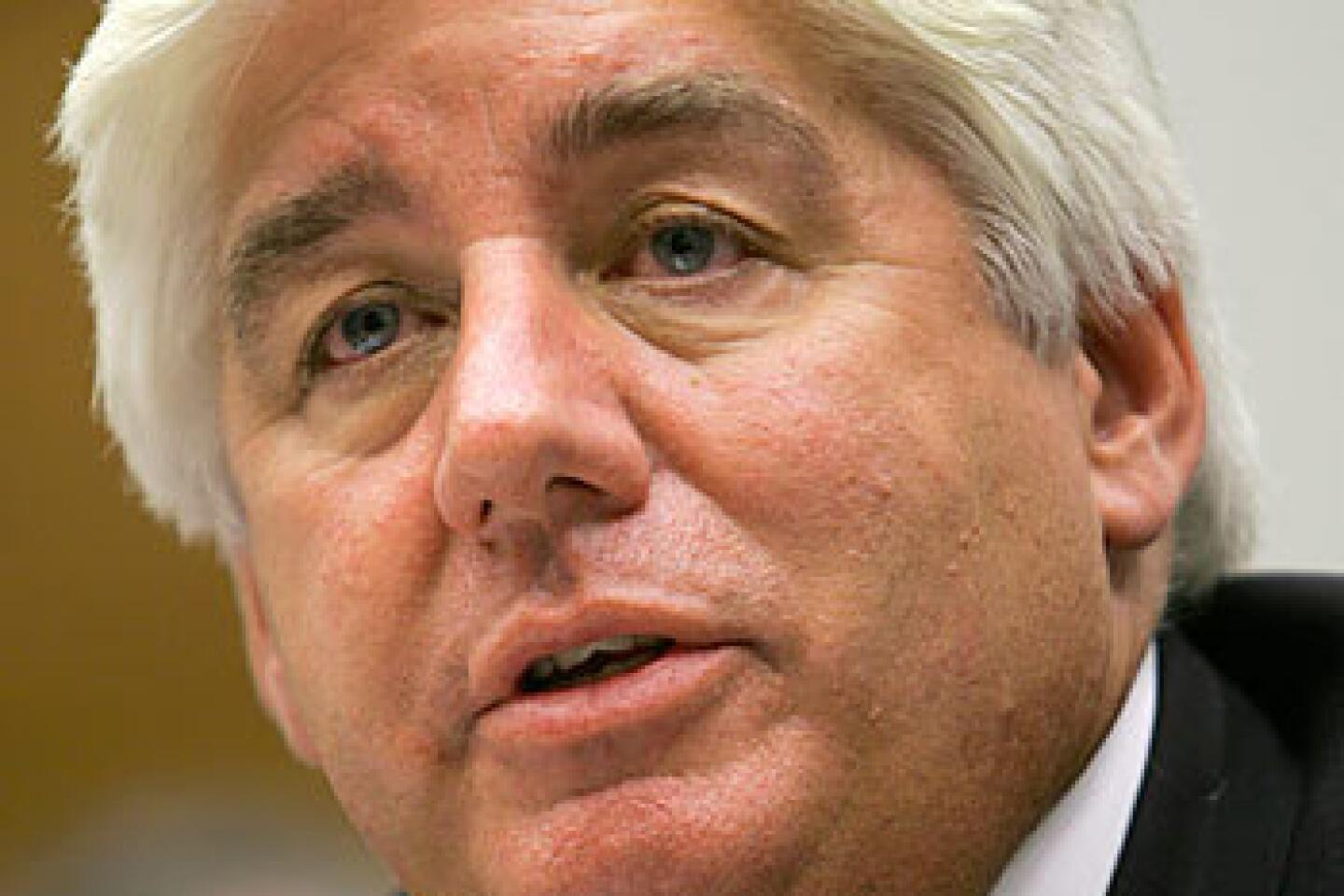Obama’s crackdown could pay off
Despite tens of billions of dollars in aid from Washington, the financial industry’s outlook remains dim -- and so, consequently, do the prospects for a quick end to the recession. The Obama administration faces the unnerving prospect of asking Congress for even more money to shore up banks, insurance companies and other lenders. Meanwhile, both ends of the political spectrum complain that the $700-billion Troubled Asset Relief Program has been a colossal waste of taxpayer money.
Against this backdrop, President Obama offered his first response Wednesday to the turmoil in the financial markets: He cracked down on Wall Street salaries and perks. Companies receiving federal aid will now have to put a $500,000 cap on salaries and perks for their leaders, deny severance packages to more executives and “claw back” bonuses from more of those who provided misleading financial information. More of a sideshow than a solution, Obama’s directive won’t reduce the risk of further bailouts or make credit more available. If anything, it could make it harder for banks to dig themselves out of their current holes by driving away talented leaders. And yet it may be an indispensable part of the solution, because the atmosphere on Capitol Hill has become so hostile to the firms seeking federal help. Simply put, Obama has to rescue the TARP’s reputation before he can do the same for any more banks.
Treasury Secretary Timothy F. Geithner -- whose reputation could use a rescue too -- has said the administration will announce a new approach to the credit crunch next week. Some change is clearly needed; the Bush administration’s strategy of using TARP money to shore up banks’ balance sheets hasn’t eased credit markets nearly as much as officials hoped, largely because of the illiquid assets that linger on so many firms’ books. No matter what path Geithner takes, though, the costs are likely to be enormous and the benefits difficult to measure.
That’s why rebuilding public confidence is crucial, even if the salary rules prompt valuable executives to leave ailing firms. Besides, some of the restrictions push the industry to realign its leaders’ incentives in long-overdue ways, discouraging the excessive risk-taking and short-term thinking that contributed to the current malaise. If the public continues to view the TARP as a rescue for reckless (and well-heeled) traders, Congress could cut off funding and leave the administration unable to intervene. Admittedly, that scenario has some appeal; we usually like the idea of letting the market punish those who make bad bets. But it loses its charm when the price is a deeper and longer downturn that punishes everyone.
More to Read
A cure for the common opinion
Get thought-provoking perspectives with our weekly newsletter.
You may occasionally receive promotional content from the Los Angeles Times.









